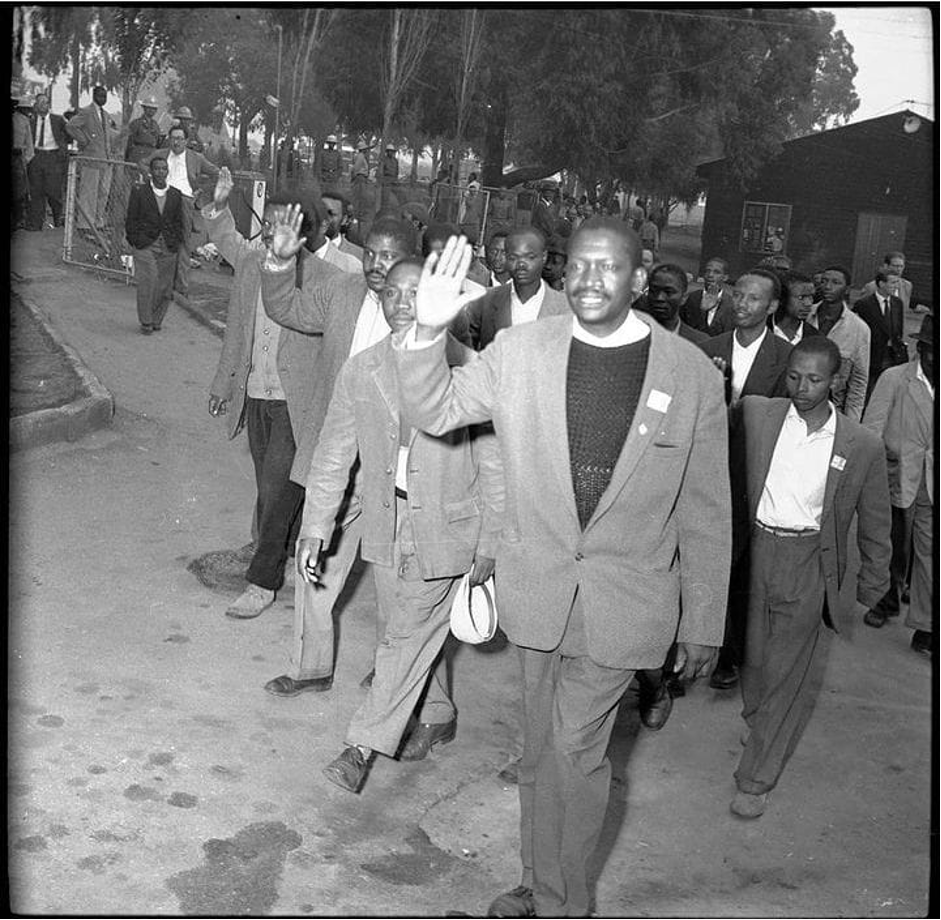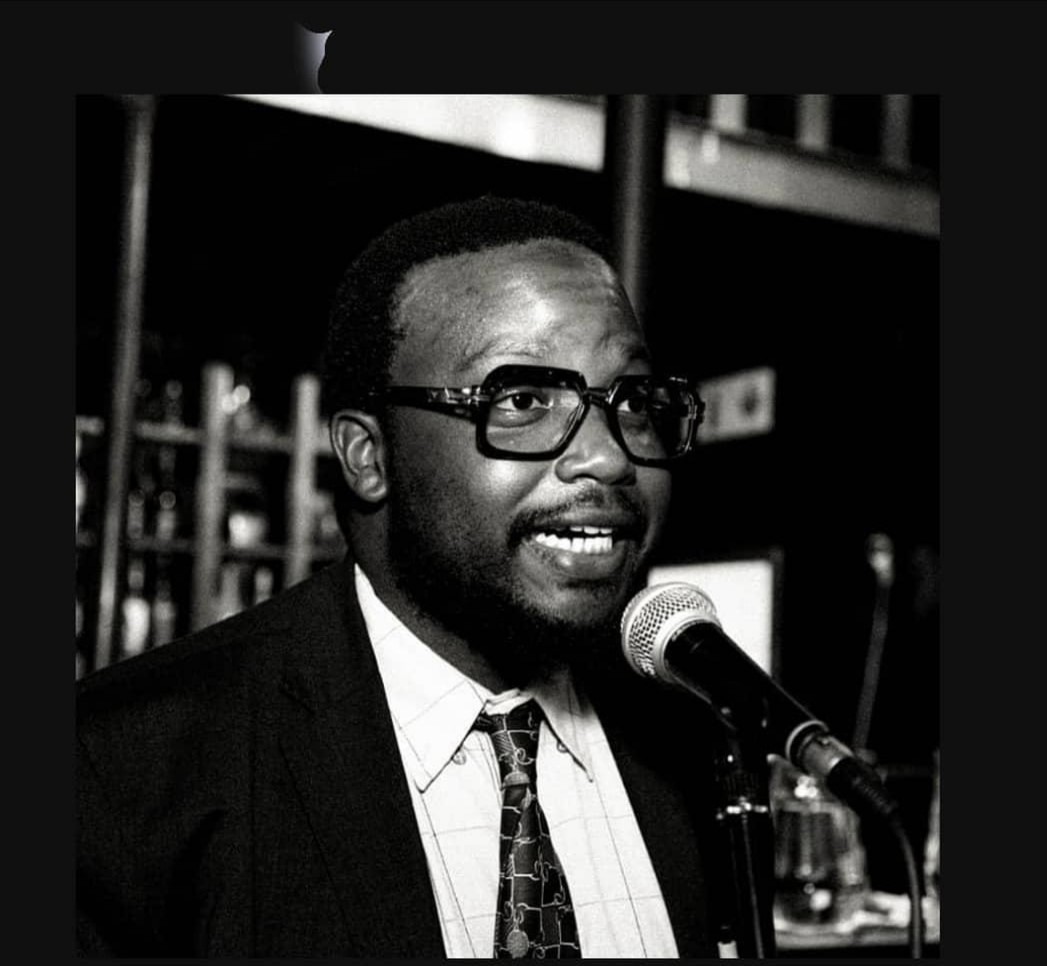The African race has been at war with the Cave men and women from the Caucasus mountains for “two thousand seasons”. Like any war, the race war waged by the “icemen and women” from glacial caves requires that the African race undertake a study of the enemy. One of these cavemen is Pope Francis who has recently visited Africa. What is Africa to this christian caveman? Our fundamental point of departure is that he symbolises the Western invention of Africa since the issuing of papal bulls such as Romanus Pontifex in 1455 by Pope Nicholas V which authorised the conquest and renaming of Africa through the criminal campaigns misleadingly christened the “journeys of discovery”. Pope Francis embodies the memories of the “dismemberment of the continent” by the “christian soldiers” who blessed by popes embarked on a race war they regarded as a just war against Africa and Africans. His needless and ridiculous visit to the continent evokes memories of dismemberment of Africa and its renaming by Europeans who are the everlasting and implacable enemies of the African race. To fully comprehend the Western invention of Africa we need to foreground the nature of Western culture and worldview and their formative stages. Marimba Ani in Yurugu: An African-centred Critique of European Cultural Thought and Behaviour draws a distinction between the African worldview and culture and the European worldview and culture. According to Ani, European culture and worldview are characterized by an asiliM/em> which seeks domination and control. By asiliM Ani implies the seed of a culture. While all cultures have an asili, according to Ani, it is only the European cultural asili which is imbricated with the desire to dominate and control. It is within this context that we can better understand the reason behind the “voyages of discovery” which were premised on the doctrine of Discovery and eventuated in the conquest and invention of Africa. In other words, it is within the framework of the politics of culture that we can situate and comprehend the historical and political behaviour of the Europeans in relation to Africa and world history. Cheik Anta Diop in The Cultural Unity of Black Africa draws a significant contrast between two cradles namely the Northern cradle and the Southern cradle. Ani also relies on what Vulindlela Wobogo in Cold Wind From The North designates Diop’s two cradle theory to situate European culture and worldview and its structure of feeling and thought. The Northern cradle according to Diop is characterised by among other things the desire for aggression and conquest due to the formation of this cradle within a hostile glacial and scarcity-ridden environment in Europe. Diop and Ani provide us with a cultural backdrop through which we can properly situate and analyse the Western invention of Africa as facilitated by the conquest and naming of Africa as expressive of the cultural asiliM/em> of European culture and worldview.
Anthony Pagden in Lords of all the World draws the connection between the desire for war and conquest within European culture which accounts for the pursuit of empire since ancient times in European history. According to Pagden the desire for universal conquest preceded the issuing of papal bulls for such a purpose. The idea of Spanish universal monarchy was premised on the medieval idea of papal spiritual universal jurisdiction. This argument is further substantiated by Robert Williams in The American Indian in Western Legal Thought. It is within this context that Williams discusses the Petrine mandate and the desire to conquer non-christians through the crusades which laid the foundation for the “voyages of discovery” and the invention of the African as a cultural Other outside of Western civilization. According to Williams the European imperial vision was motivated by the papal universal jurisdiction. Sylvia Wynter explicates the epistemological rupture which helped to lay the fundament for the Western invention of Africa in these words “Pocock points out that the West’s epochal shift was to be based on the transfer of the central behaviour-regulating “redemptive process” formerly centralized in the church under the direction of the celibate clergy. That process had been oriented about the other-worldly supraordinate (or metaphysical) goal of attaining to the eternal salvation of the Augustinian civitas dei and was prescribed to be effected through a life primarily aimed at securing one’s spiritual redemption from the negative legacy of Adamic Original Sin, as inscribed in the founding original narrative of the biblical Genesis. It was this process that was now transferred together with its earlier goal to that of the new this-worldly goal of the growth, expansion, and political stability of each European state in competitive rivalry with its fellow European states”. This epistemological rupture which eventuated in the shift to the new this-worldly perspective was endowed with philosophical sophistication by the Enlightenment thinkers such as Hegel and Kant. The xenophobia of the Northern cradle was given epistemological legitimacy through Enlightenment philosophy. It is the Enlightenment project which birthed the image of Africa as savage and thus in need of Western civilization. The Enlightenment thinkers were what Sylvia Wynter designates “the grammarians of the new epistemological order”. It is during through the rein of this new epistemological order that Africa and Africans came “under Western eyes” or the Western gaze. At the core of the invention of Africa was the concept of race. According to Emmanuel Eze race and Enlightenment go together and this has resulted in the Western notion of the “colour of reason” which excludes Africa and Africans. Africa for these racist thinkers represented a lack and not an autonomous reality. This African lack was to be filled by Western civilization. According to Tsenay Serequeberhan these “icons of the occidental tradition” such as Kant formulated the “idea” which served as the premise for the racist criminal campaigns euphemistically called the” voyages of discovery”. This is what Emmanuel Eze states regarding the role of the Enlightenment project “the European-inspired Enlightenment accountable for the false conceptual frameworks within which they produced, for example, the idea of history as something in the name of which peoples outside of the narrow spheres of Europe appeared to many of the European states as legitimate objects of capitalist enslavement, political conquest, and economic depredation”. Western philosophers of the Enlightenment project inaugurated “discourses on Africa” which invented the image of Africa as Conrad’s heart of darkness.
The Enlightenment philosophers’ obsession with race which underlies the invention of the cultural Other mirrors the xenophobia of the Northern cradle and the linguistic framework of the West premised on the subject and object dichotomy. Biakolo substantiates our postulation by arguing that the “Relations between the knowing subject and its object, in any account of the epistemological process, has occupied Western philosophy from the time of Plato. The critical question was how to think the non-Caucasian races, ‘the Other’, with whom the Western world had come into increasing contact since the great exploratory journeys of the fifteenth century”. Marimba Ani has demonstrated that at the core of the European worldview and culture is dichotomous reasoning with splits. Dichotomous reasoning and hierarchy are just two of the prominent traits of European culture. This dichotomous reasoning and hierarchy within Western thought birthed the ontological pyramid in the name of the “great chain of being”. This eventuated in the “invention of other races” within the West itself prior to Western colonisation and imperialism. This invention of other races within the West itself according to Cedric Robinson’s notion of racial capitalism in Black Marxism is indicative of the inherent racist nature of Western culture and civilization. In this racist ontological chain, the Europeans occupies the topmost part while Africans occupy the bottom part if they are lucky. This is because sometimes they do not feature in the radar of Western ontological order at all. In other words, Africans are sometimes not even the cultural Other but are ontological nothingness. Africans are classified by the racist “icons of the occidental tradition” as what Charles Mills calls “subpersons” or “Kant’s untermenschen”. This is because fundamentally at the level of world history according to Hegel’s manufactured his-story, “Africa is not part of world history”. Only Cartesian cogito can produce and be part of world history. Hegel inaugurated the Western invention of Africa at the level of history by severing Africa form the domain of high culture and civilization. Hegel did this by absurdly stating that Africa is not part of Egyptian civilization and that “Africa proper” is south of the sub-Sahara. Hegel de-Africanised north Africa by splitting Africa into two parts. Hegel “dismembered the continent” both historically and philosophically. According to him the African Spirit is found in the sub-Saharan region which is the heart of darkness without development. These racist ramblings constituting a white supremacist philosophical and historical invention of Africa and Africans by Hegel are found in his Lectures on the Philosophy of History. Hegel was in a racist company of the Enlightenment project which in fact was projecting its “epistemological darkness” of Africa onto the Africans and Africa in the name of Western Enlightenment thought. As Eze has demonstrated in Race and the Enlightenment there were many Western philosophers with a “racist consensus” on Africa and Africans. David Hume stated that Africa did not produce a civilization while Immanuel Kant concluded rather absurdly that because one’s skin was black it shows that what one says is stupid. This “racist consensus” of the Enlightenment project laid the fundament of what Mudimbe in The Invention of Africa designates the “discourses on Africa”. According to Mudimbe “What they propose is an ideological explanation for forcing Africans into a new historical dimension. Finally, both types of discourses are fundamentally reductionist. They speak about neither Africa nor Africans, but rather justify the process of inventing and conquering a continent and naming its “primitiveness” or “disorder,” as well as the subsequent means of its exploitation and methods for its “regeneration.” It is in this sense that on the premise of what Charles Mills designates “epistemologies of ignorance” that the West intentionally mistook their map of Africa for the territory of Africa itself. In any event the epistemological and ontological cartography of Western thought excluded Africa and Africans. This was part of the Copernican revolution which eventuated in the West inventing not just Africa but the world starting of course with the West itself.
According to the problematic Ali Mazrui in The Africans: A Triple Heritage “It could be said that Africa invented Man, that the Semites invented God and that Europe invented the world, or rather the concept of the world. Europe developed the concept of the world in the wake of its voyages of discovery in the fifteenth and sixteenth centuries, but it even imposed its form of that concept on the outlook of peoples in other continents, including Africans”. Mudimbe posits that the Western invention of Africa entails the dichotomy between the Same and Other which are both epistemological as part of anthropology as a racist discipline and ontological as they portray Africa as replete with savages and primitives “without ontological density”. According to Mudimbe “the grid of Western thought and imagination, in which alterity is a negative category of the Same. It is significant that a great number of European representations of Africans, or more generally of the continent, demonstrated this ordering of otherness.” This ordering of otherness was expressed through what Biakolo designates “categories of cross-cultural cognition”. According to Biakolo these categories include the splits or dichotomies of civilized versus savage, pre-logical versus logical and religious versus scientific. Africa and Africans always occupied the negative categories and this aided Europeans in formulating a coherent positive collective self-identity. This negative invention of Africa and Africans was later consummated with what Cedric Robinson calls “the invention of the Negro” in the United States. According to Afro-pessimism this ontological and anthropological process of negative and positive co-invention is premised on Semiosis. This Semiotic process entails the fact that for the idea of the human to have conceptual coherence there must be its foil which is the not-human or human-not and, in this case, the black as the slave. These categories were formulated by Western thinkers in the process of inventing Africa and Africans which resulted in a “European image of Africa”. This is how Biakolo states it “The image of the African as ‘brutish, ignorant, idle, crafty, treacherous, bloody, thievish, mistrustful, and superstitious’, which was quite current in Europe and the colonies in the eighteenth century, had a most respectable antecedent in the ethnocentricism of philosophers like David Hume, Voltaire, and the French philosophers such as Montesquieu”. The discourses on Africa through which the West invented Africa were fundamentally premised on Mogobe Ramose calls the “struggle for reason”. Because Africans were excluded from Aristotle’s definition of “man as a rational animal” they were stripped of their humanity which includes the linguistic capacity to name their environment. Following the doctrine of Discovery, the West conquered Africa and in the process named her in its own image. It is in this sense that the Western invention of Africa was based on epistemicide and land dispossession. Africa was imagined, conquered, and then named in the image of the Western conqueror. The naming and invention of Africa by the West was an exercise in the “right of conquest” which resulted in Western colonialism and imperialism which are still plaguing Africa since the unbelievably disastrous coming of “white cavemen” from the Caucasus mountains. It is in this sense that the Western invention of Africa is part of the “icemen inheritance” and Pope Francis is its christian heir.






















